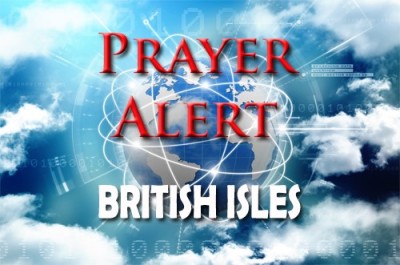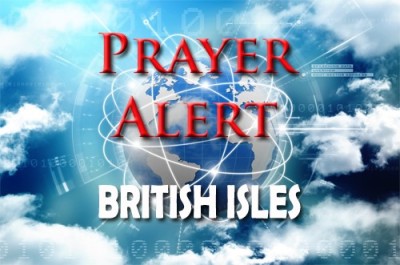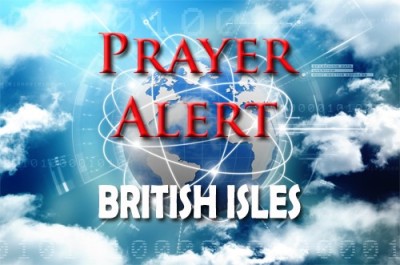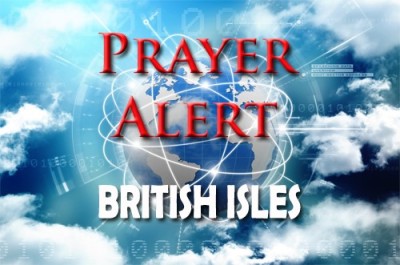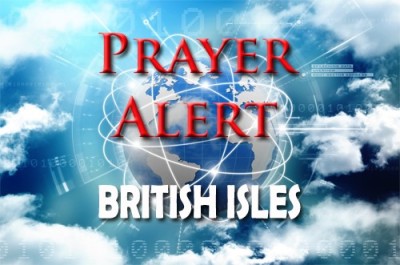Jamal Bryant’s church gets unemployed members 300 job offers
At New Birth Church in Georgia, Pastor Jamal Bryant recently turned an altar call into an unexpected job fair. During a September service, he invited unemployed members to the altar for prayer, then asked hiring managers present to share opportunities. The response was immediate: directors, supervisors, and business owners stepped forward, resulting in over 300 job offers for struggling congregants. Bryant praised the church’s faith in action, noting the need amid rising black unemployment, which recently reached 7.5%, the highest since late 2021. Economists warn the downturn is hitting black communities disproportionately, particularly as cuts in federal employment take effect. While national leaders debate solutions, New Birth showed what a church family can achieve by caring for one another in practical ways. Stories like this echo the early church’s example of meeting both spiritual and material needs. God is still using His people to bring provision, dignity, and hope.
Trump meets Starmer as £150bn US investment is announced
Donald Trump has met Keir Starmer at Chequers during his second state visit to the UK, following the announcement of £150 billion in American investment. The funds, pledged by major firms including Blackstone, Prologis, and Palantir, are expected to create around 7,600 jobs across Britain. The leaders are set to sign a 'technology prosperity deal' to boost UK artificial intelligence development, while also discussing trade, investment, and foreign policy. The talks come after a Windsor Castle state banquet, where both Trump and the King hailed the 'special relationship' between the UK and US. While Starmer hopes to spotlight renewed transatlantic ties and economic opportunity, both governments face awkward questions, including ongoing controversies linked to Jeffrey Epstein and differing positions on Israel. Chancellor Rachel Reeves will also host a Downing Street reception for US and UK business leaders to showcase deeper cooperation. The visit marks a significant moment for strengthening economic and diplomatic bonds between the two nations.
Small boat immigrant deportation flights grounded again
The Government’s new 'one in, one out' deal with France to deport Channel migrants has hit delays, as deportation flights were grounded for a third consecutive day. The Home Office is appealing a High Court ruling which halted the removal of a man claiming to be a victim of modern slavery. Home secretary Shabana Mahmood condemned 'last-minute, vexatious' appeals, vowing to fight attempts to block removals and pledging to review the Modern Slavery Act to close loopholes. She insisted that Britain’s generosity was being exploited and promised to 'robustly defend the public’s priorities’. The UK-France pilot scheme, agreed by Keir Starmer and Emmanuel Macron in July, would return asylum seekers arriving illegally in small boats while allowing approved applicants to enter the UK through a legal route. Officials maintain flights will still go ahead in the coming days, despite setbacks. Critics warn, however, that deportations must carefully consider genuine trafficking cases and vulnerable individuals. Breaking news: the first deportation has taken place. See
Musk's language abhorrent, says Shabana
Home secretary Shabana Mahmood has branded Elon Musk’s language at a London rally 'abhorrent’, after he warned of violence linked to uncontrolled migration and called for Parliament’s dissolution. Mahmood insisted: 'No-one gets to mess with British democracy’, stressing that Britain is a tolerant and diverse nation. Musk’s remarks, delivered in conversation with activist Tommy Robinson at the 150,000-strong 'Unite The Kingdom' march, were condemned across the political spectrum. Liberal Democrat leader Sir Ed Davey said Musk was 'deeply irresponsible, deeply dangerous’, while Downing Street called his words inflammatory and threatening to public order. Debate also arose over whether Musk’s Tesla and energy ventures should receive UK contracts, with critics urging government review. Nigel Farage defended Musk’s appeal to 'fight' through free speech and elections, though others accused him of fuelling division. As protests and counter-protests highlighted national tensions, Mahmood affirmed that English identity embraces both long heritage and diverse backgrounds.
Christian councillor ‘shocked’ at Danny Kruger’s defection to Reform UK
Conservative councillor Clare De Silva has expressed her sadness at fellow Christian Danny Kruger’s defection to Reform UK. Kruger, MP for East Wiltshire since 2019 and formerly shadow work and pensions minister under Kemi Badenoch, announced his move alongside Nigel Farage, who appointed him to lead a new Reform team preparing for government. Calling the decision 'very painful’, Kruger declared, 'The party is over: the flame is passing from one torch to another’, and praised Farage as 'our last hope' on the right. De Silva told Premier Christian News she was shocked and saddened, calling the departure a poignant loss. While disagreeing with his choice, she stressed the importance of Christians disagreeing well in politics: 'I know Danny is a God-fearing man and will have made this decision really carefully… we should disagree well.' The moment highlights both division and opportunity for grace among believers in public life.
No food trade deal until we get youth mobility, EU tells Starmer
Brussels has warned that no deal on easing border checks for UK food imports will be reached unless Britain agrees to expand youth mobility schemes. The proposed sanitary and phytosanitary (SPS) agreement - central to Labour’s plan to reduce food costs by 2027 - would align rules on plants, animals, and food products, cutting supermarket prices and border delays. But EU negotiators insist progress depends on allowing more young Europeans aged 18 to 30 to live and work in the UK. Cabinet office minister Nick Thomas-Symonds pressed for urgency during talks in Brussels, stressing the need for relief as food inflation has risen for five consecutive months, with key staples up 5.1% annually. European diplomats, however, argue the SPS deal is more important for Britain than the EU. Meanwhile, UK firms face possible exclusion from bidding on EU defence projects worth €150 billion unless terms are finalised soon, with France resisting UK involvement. The Government faces mounting pressure as household food costs continue to climb.


